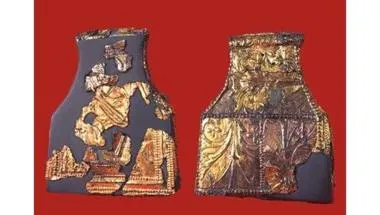
Dr Carl Kears
Senior Lecturer in Medieval Literature
Research interests
- Literature
Contact details
Biography
My research examines the relationship between the early medieval past and contemporary acts of creativity and reception that put that past to work. I am particularly interested in reworkings of Old English in the present that take place in spaces and archives that challenge or resist more conservative academic and institutional forms and formats. The cross-period interests of my research are founded on what is a deep interest in the materiality and artistry of the earliest English vernacular poetry, but they also emerge out of a sustained interrogation of the ways in which burned, smudged, glossed or unfinished pages of surviving early medieval codices ask to be read and re-read as they move through time. My training in the languages and literatures of the Middle Ages, and especially in Old English, informs my approach to modern and contemporary poetic practices. These connected strands of my research are represented on the one hand by my monograph MS Junius 11 and its Poetry (a study of the poems of one of the four major manuscripts of early medieval vernacular verse) and, on the other, by my sequence of articles about small press poets, early creative critics, renegade publishers and reactionary artists resourcing, editing and responding to Old English in the twentieth and twenty-first centuries. The most recent of these focuses on the poet-artist Bill Griffiths and the ways the Old English poem The Phoenix drove his activism and creative practice in Seaham, County Durham. My work is also invested in creative collaboration with practitioners who are reinventing and responding to medieval material through archival, transhistorical and queer methodologies: I have a forthcoming collection of creative-critical essays with UCL Press, co-edited with Francesca Brooks, entitled Beyond Medieval Archives: Rethinking the Medieval Archive through Creative and Critical Practice, that represents this fully. My interests in interdisciplinary and post-disciplinary approaches to the Middle Ages extend to histories of genre, to archives of the future, and to the future history of ‘the book’. These areas of my research are also represented by the collection of essays, Medieval Science Fiction, which I co-edited with James Paz.
I am currently first supervisor to several PhD students across a range of topics, including contemporary and medieval trans poetry; the global medieval; the tradition and transmission of 'The Wonders of the East'; and the medieval lineage of ecological folk horror. I would love to hear from prospective students looking to work with any aspect of Old English and surviving early medieval manuscripts (and their histories). I would also be interested to hear from any students looking to study the matter of the Middle Ages from perspectives of, e.g., space and place, translation, local history, contemporary communities, class, materiality, or modes of engagement beyond university settings.
I grew up in the North East of England, come from a working-class background and was the first person in my family to pursue university education. This drives and informs my research but also my advocacy and practice. I am happy to talk to and collaborate with students, whatever their story, to support alternative pathways through academia as well as part-time study, and to find positive ways to navigate the challenges of academic spaces at all levels.
Research Interests
- Old English Literature, especially the manuscripts of Old English poetry
- Modern and contemporary poetry and archives, small presses, local or outer-university research, creative practice and activism
- Histories of genre fiction, archives of the future, medieval science and fiction
Teaching
I teach across a range of modules at all levels, from the first-year core medieval module (Medieval Literary Culture) and second-year modules on Old English language and literature (including ‘Cultural Encounters: Language and Literature in Anglo-Saxon England’) to convening advanced courses in Old English poetry (‘Beowulf’) and the afterlives of Old English poetic manuscripts (‘Archives of Old English Poetry’). I convene and teach ‘Medieval Science Fiction’ at Level 5 as well as teaching across the MA in Medieval Studies.
Research

presentPasts
Across the Faculty of Arts & Humanities, King’s academics study cultural interactions across time and the transhistorical traditions that often frame, foster, and shape them.

Centre for Late Antique and Medieval Studies
Interdisciplinary centre for the study of late antique and medieval history, languages, philosophy, religion, literature and music in western and eastern Europe.
News
Songs and stories highlight role of saints in community-building
“My Name is Oswald”, a new song cycle telling the stories of St Oswald of Northumbria, premiered in a performance in the King’s Chapel on 12 February.

Winners of 2025 Cosmo Davenport-Hines Poetry Prize revealed
One winner and two runners-up have been chosen for this year's Cosmo Davenport-Hines Poetry Prize on the theme of 'Community'.

Cosmo Davenport-Hines Poetry Prize 2025 for students opens
The Department of English is delighted to announce the launch of the annual Cosmo Davenport-Hines Poetry Prize for students, with a deadline of 7 April 2025.

Research

presentPasts
Across the Faculty of Arts & Humanities, King’s academics study cultural interactions across time and the transhistorical traditions that often frame, foster, and shape them.

Centre for Late Antique and Medieval Studies
Interdisciplinary centre for the study of late antique and medieval history, languages, philosophy, religion, literature and music in western and eastern Europe.
News
Songs and stories highlight role of saints in community-building
“My Name is Oswald”, a new song cycle telling the stories of St Oswald of Northumbria, premiered in a performance in the King’s Chapel on 12 February.

Winners of 2025 Cosmo Davenport-Hines Poetry Prize revealed
One winner and two runners-up have been chosen for this year's Cosmo Davenport-Hines Poetry Prize on the theme of 'Community'.

Cosmo Davenport-Hines Poetry Prize 2025 for students opens
The Department of English is delighted to announce the launch of the annual Cosmo Davenport-Hines Poetry Prize for students, with a deadline of 7 April 2025.

